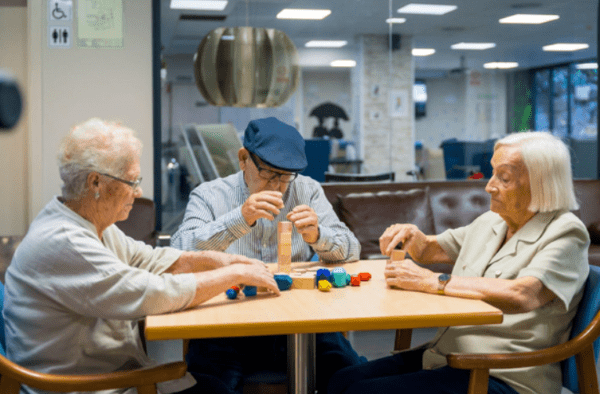In case you missed it see what’s in this section
Let's Talk
How to Care for Elderly Parents: Practical Tips and Strategies

Understanding the Challenges of Elderly Care
Caring for aging parents can be a complex and multifaceted challenge. As our loved ones grow older, they often face a range of physical, emotional, and cognitive changes that can make daily life more difficult. From managing chronic health conditions to providing emotional support, the responsibilities of eldercare can be overwhelming for both the caregiver and the care recipient.
Navigating this journey requires a deep understanding of the unique needs and challenges faced by the elderly. It's essential to approach eldercare with empathy, patience, and a willingness to adapt to the evolving circumstances. By addressing the various aspects of elderly care, caregivers can help their loved ones maintain their independence, dignity, and quality of life for as long as possible. For comprehensive resources and expert advice on eldercare, visit elderlycaretips.io.
Creating a Safe and Accessible Living Environment
One of the primary concerns when caring for elderly parents is ensuring their living environment is safe and accessible. As individuals age, they may face increased risks of falls, mobility challenges, and other hazards that can compromise their safety and well-being. Caregivers should carefully assess the home and make necessary modifications to address these concerns.
This may involve installing grab bars in the bathroom, removing tripping hazards, improving lighting, and ensuring the home is wheelchair-friendly if needed. It's also crucial to consider the overall layout and design of the living space, making it easy for elderly parents to navigate and perform daily tasks with minimal difficulty.
By creating a safe and accessible environment, caregivers can help their loved ones maintain their independence and reduce the risk of accidents or injuries. This not only enhances their physical well-being but also provides peace of mind for the caregiver and the care recipient.
Managing Medication and Healthcare Needs
Elderly individuals often require a complex regimen of medications to manage their health conditions, and keeping track of these medications can be a significant challenge. Caregivers must work closely with healthcare providers to ensure their loved ones are taking the right medications at the right times, and that any potential interactions or side effects are closely monitored.
This may involve creating a medication management system, such as a detailed schedule or a pill organizer, to help the elderly parent stay on track. Caregivers should also encourage their loved ones to attend regular check-ups and screenings, and to communicate openly with their healthcare providers about any concerns or changes in their health.
In addition to managing medications, caregivers may need to coordinate various healthcare services, such as home health aides, physical therapists, or specialized medical equipment. By staying organized and proactive, caregivers can help ensure their elderly parents receive the comprehensive care they need to maintain their health and well-being.
Providing Emotional Support and Companionship
Caring for elderly parents is not just about addressing their physical needs; it also involves providing emotional support and companionship. As individuals age, they may experience feelings of loneliness, isolation, and even depression, which can have a significant impact on their overall well-being.
Caregivers can play a vital role in addressing these emotional needs by engaging their elderly parents in meaningful activities, encouraging social interaction, and creating a nurturing and supportive environment. This may involve organizing regular outings, facilitating family gatherings, or simply spending quality time together, engaging in conversation, and listening to their loved one's stories and concerns.
By fostering emotional connections and providing a sense of belonging, caregivers can help their elderly parents feel valued, respected, and cared for. This, in turn, can improve their mood, reduce feelings of isolation, and promote overall mental and emotional well-being.
Ensuring Proper Nutrition and Hydration
Maintaining proper nutrition and hydration is crucial for the health and well-being of elderly individuals. As people age, they may experience changes in appetite, difficulties with swallowing, or other health issues that can make it challenging to consume adequate nutrients and fluids.
Caregivers should work closely with healthcare providers to develop a personalized nutrition plan that addresses their elderly parent's specific dietary needs and preferences. This may involve preparing nutrient-dense meals, offering smaller, more frequent snacks, or incorporating supplements if necessary.
It's also essential to ensure that elderly parents stay hydrated, as dehydration can lead to a range of health problems, including confusion, dizziness, and urinary tract infections. Caregivers can encourage their loved ones to drink water throughout the day, and they may need to provide assistance with tasks such as opening bottles or using a straw.
By prioritizing proper nutrition and hydration, caregivers can help their elderly parents maintain their strength, energy, and overall health, which can in turn improve their quality of life and reduce the risk of complications.
Promoting Physical Activity and Mobility
As people age, maintaining physical activity and mobility can become increasingly challenging, but it is essential for preserving independence, preventing falls, and promoting overall health. Caregivers should work with healthcare providers to develop a personalized exercise plan that takes into account their elderly parent's physical abilities, limitations, and preferences.
This may involve encouraging low-impact activities, such as walking, swimming, or gentle stretching, or incorporating assistive devices like walkers or canes to improve mobility. Caregivers can also explore opportunities for their elderly parents to participate in group exercise classes or activities, which can provide social interaction and a sense of community.
In addition to physical activity, caregivers should also focus on maintaining their elderly parent's mobility and range of motion through regular stretching, physical therapy, or occupational therapy interventions. By prioritizing physical activity and mobility, caregivers can help their loved ones maintain their independence, reduce the risk of falls, and improve their overall quality of life.
Addressing Cognitive and Memory Issues
As people age, they may experience cognitive changes, including memory loss, difficulty with problem-solving, or changes in their ability to communicate effectively. These cognitive and memory issues can have a significant impact on an elderly individual's daily life and independence.
Caregivers should be proactive in identifying and addressing these challenges, working closely with healthcare providers to develop a comprehensive care plan. This may involve incorporating cognitive stimulation activities, such as puzzles, word games, or memory-enhancing exercises, into the daily routine.
Caregivers should also consider strategies to help their elderly parents compensate for memory challenges, such as using calendars, checklists, or other organizational tools. Additionally, they may need to adapt their communication style, speaking slowly, using simple language, and providing clear instructions to ensure their loved one can understand and respond effectively.
By addressing cognitive and memory issues, caregivers can help their elderly parents maintain their independence, reduce the risk of confusion or disorientation, and improve their overall quality of life.
Managing Financial and Legal Matters
As elderly individuals face various health and mobility challenges, it becomes increasingly important for caregivers to assist with financial and legal matters. This may include managing bills, handling insurance claims, or navigating complex legal documents, such as wills, power of attorney, or advance directives.
Caregivers should work closely with their elderly parents to ensure that all necessary financial and legal arrangements are in order, and that they have a clear understanding of their loved one's wishes and preferences. This may involve seeking the guidance of financial advisors, estate planners, or legal professionals to ensure that all matters are handled properly and in accordance with the elderly parent's best interests.
By proactively addressing financial and legal concerns, caregivers can help alleviate stress and uncertainty, and ensure that their elderly parents' affairs are in order, should they become unable to manage them independently.
Seeking Professional Help and Support Services
Caring for elderly parents can be an overwhelming and demanding task, and it's essential for caregivers to seek professional help and support services when needed. This may include accessing in-home care services, respite care, support groups, or counseling to help manage the emotional and physical demands of caregiving.
Caregivers should research and explore the various resources available in their local community, such as senior centers, adult day programs, or home health agencies, to determine the best fit for their elderly parent's needs. They may also need to work with healthcare providers to coordinate specialized services, such as physical therapy, occupational therapy, or hospice care.
By seeking professional help and support, caregivers can not only improve the quality of care for their elderly parents but also prioritize their own well-being and prevent caregiver burnout. This can ultimately lead to a more sustainable and fulfilling caregiving experience for both the caregiver and the care recipient.
Weather in Swindon
Listings





















